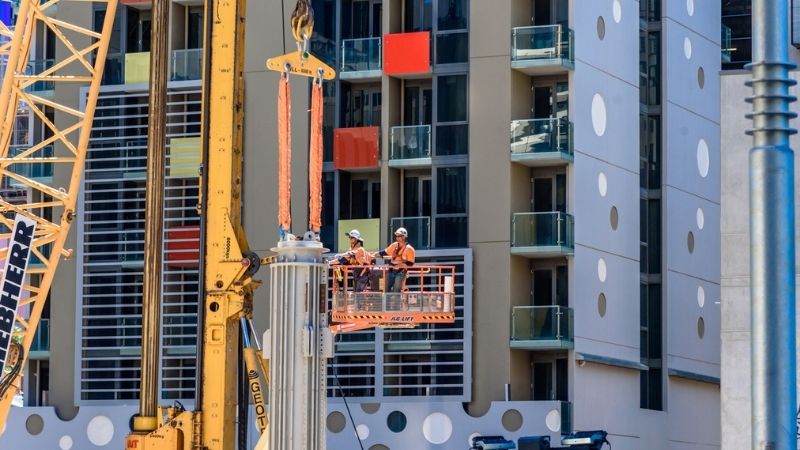Survey Highlights Shortfall in Proptech Take-Up
Research by proptech leaders Procore has found a gap in the digital capabilities required to support quality assurance and compliance with new building regulations in Australia.
While more than nine in 10 construction leaders surveyed (92 per cent) agreed that technology plays a role in capturing information that may be required by relevant authorities, just 29 per cent use specialist software to support their quality and compliance processes.
Conducted by ACA Research, Procore’s survey of 153 construction leaders around Australia explored ongoing challenges with quality assurance (QA), industry awareness and understanding of new local building regulations, and the role of technology in supporting project quality and compliance.
“This program of research explores some of the key issues impacting the Australian construction industry as it sits on the cusp of significant regulatory change,” Ben Selwyn, director at ACA Research, said.
“Building on previous polls, the research further develops our understanding of challenges facing the sector in areas such as safety, quality, and compliance, and the strategies that businesses are taking to address them.
“During the past three years we have seen technology play an increasingly important role in delivering to these objectives, with firms of all sizes developing a greater understanding of the value that can be derived from more effectively capturing, integrating and using data to optimise business operations.”
Harnessing digital
Design and building practitioners are routinely required to produce project documentation to demonstrate compliance with regulations, sometimes at short notice during a spot site check.
According to the survey, just one in four of the construction leaders said they could instantly produce the required documentation (24 per cent), with a further 49 per cent confident they could produce their compliance records within a day.
Collection of data by subdivisions is the biggest barrier to accessing compliance documentation, with 38 per cent of respondents saying data is collected or handled by different teams and there is no central, up-to-date repository for documentation.

While most respondents capture records in a compatible digital format (72 per cent), parts of the industry are still lagging with 12 per cent admitting they don’t have a digital system for compliance records.
Overall, 65 per cent of respondents say that they need to do a better job of designing QA processes and forms that can be completed on-site using mobile devices.
This is an increase from the 52 per cent recorded in Procore’s 2020 industry poll on quality assurance, indicating a growing trend towards digital maturity across the industry.
Challenges with quality and compliance
A lack of centralised documentation and communication across all stakeholders appears to be an ongoing challenge when it comes to quality and compliance.
The biggest issues with on-site compliance are a lack of communication (74 per cent) and work not aligning with the latest set of plans (66 per cent), while 63 per cent of respondents agreed that QA needs to be a connected and transparent process across all areas of the business, from policy design through to reporting (on par with 64 per cent in 2020).
The survey also found 82 per cent of respondents believe that better use of data can help to avoid problems with onsite communication
As digital transformation accelerates across the industry, the most challenging aspects of managing QA are now related to data management.
Integrating data into a single platform was rated the most challenging part of the QA process (76 per cent). Ensuring third parties, clients and other stakeholders can access relevant QA records was equal second with last year’s front-runner—setting and specifying QA protocols (71 per cent).
Building reforms knowledge
As governments look to improve build quality and lift consumer confidence in the Australian construction industry, new regulations under the NSW Design and Building Practitioners Act are expected to set a precedent for national reform.
The task of reaching, educating and driving change across the large and disparate Australian construction industry is a difficult one, and while awareness of the new regulations is growing, there is still some work to be done.
Three in four respondents surveyed in NSW and ACT are generally aware of the act (76 per cent), however, many admit they are not fully across its requirements (59 per cent ).

One in five local respondents had not heard of the act before participating in the survey, shortly before the reforms came into full effect on July 1, 2021.
This has come a long way since the Office of the NSW Building Commissioner reported that 80 per cent of the industry was unaware of the Act in January 2021.
Nationally, and with many businesses operating across state lines, just 24 per cent are both aware and fully across the requirements of the act.
Tech’s role in QA
With new regulations in NSW and others expected to follow across the nation, respondents agreed that technology plays an important role in supporting quality assurance and compliance with building regulations.
Nine in ten Australian construction leaders agreed they need technology to capture information that may be required by relevant authorities (92 per cent).
The vast majority of respondents also said technology would help them stay on top of typical areas of defect (88 per cent ), as well as isolate and understand the cause of defects (89 per cent ).
However, two in five respondents (39 per cent) said that it is too challenging and time consuming to train people to use software—a pain point that is fairly consistent across businesses of all sizes
“The Australian construction industry is undergoing a turning point in quality assurance, and technology and data are going to play a central role in this shift,” said Tom Karemacher, vice president, APAC at Procore.
“While there are still significant gaps and barriers to tech adoption, we are seeing digital awareness and maturity growing across the industry.
“Construction companies are recognising the multitude of benefits that investing in centralised project data and communication management can bring, including assisting in achieving QA and compliance outcomes.”
To learn more about how technology can improve quality assurance processes in construction, click here
The Urban Developer is proud to partner with Procore to deliver this article to you. In doing so, we can continue to publish our daily news, information, insights and opinion to you, our valued readers.















